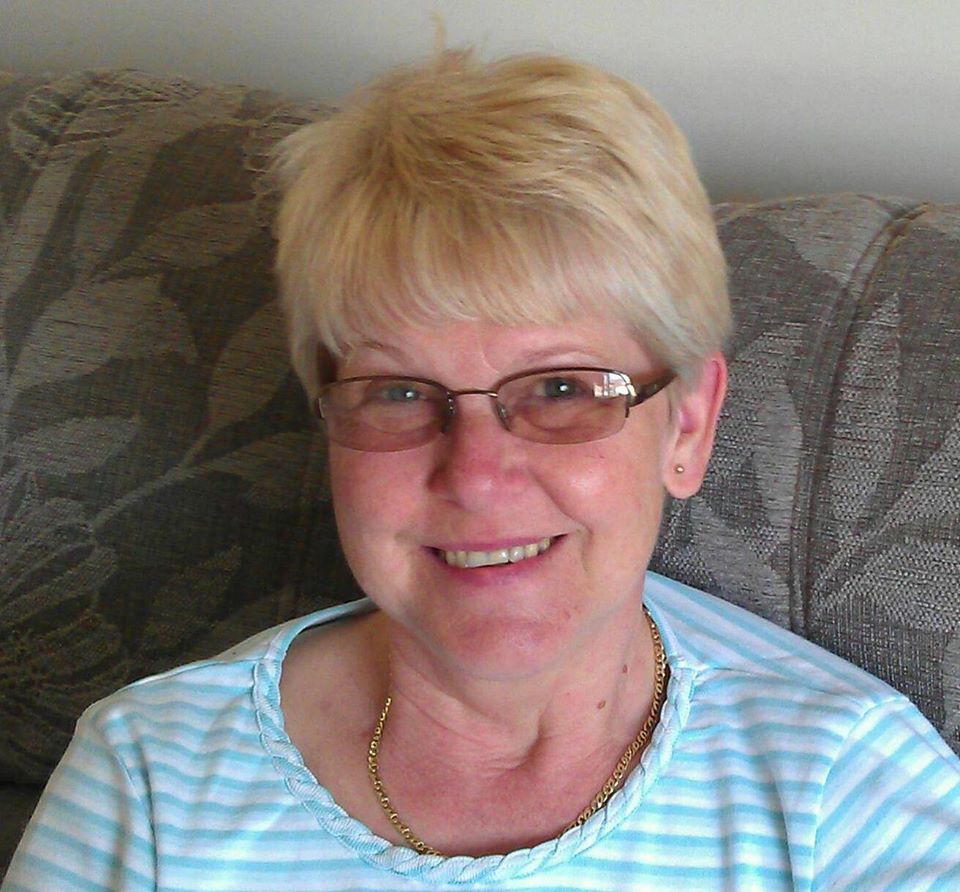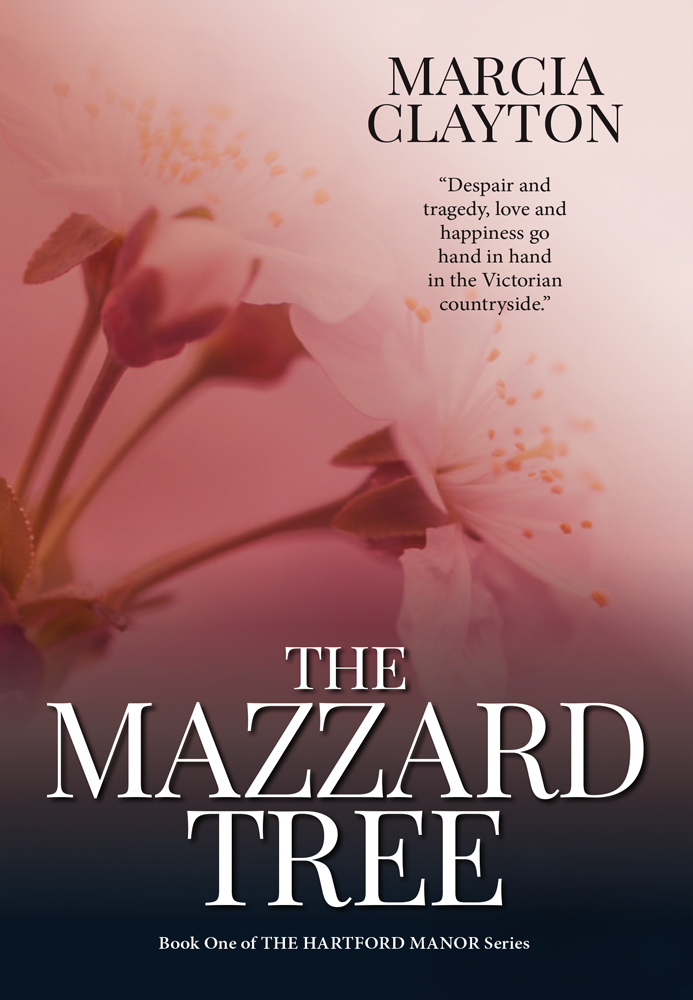This evening in the Library we have Marcia Clayton who has dropped in to say hello and to share some insights into her life as an author.
Good evening, and thank you for inviting me for a chat, Pam. I live in North Devon in the South West of England, and I am a farmer’s daughter. I left school just before my sixteenth birthday, and worked for seven years in a bank before leaving to start a family. I held a variety of jobs for several years, working around looking after our three sons but then in 1990, I became an admin manager at our local college. It was at this time I decided to further my education by taking A levels in English and History, and went on to achieve a degree-equivalent qualification in management. In 2006, I moved to a job with the local authority as the Education Transport Manager, and I remained in that post until I retired in 2016. I am now enjoying retirement with my husband, Bryan.
- Which genre do you write in and what draws you to it?
I’ve written three historical fiction books in the Hartford Manor family saga, which is set in Victorian times. My interest in this period stems from my love of researching my family tree. My maternal granny absconded, leaving her husband with four children when my mother was just eighteen months old. My mum never met her mother, and as a child, this story intrigued me and I couldn’t wait to investigate.
- Are you an avid reader? Do you prefer books in your own genre or are you happy to explore others?
Yes, I am an avid reader and historical fiction is my favourite but I also like crime novels, and some of my favourite authors include Lee Child, Ann Cleeves, and Norah Roberts. However, I sometimes like to try something different and I recently read “A Thousand Splendid Suns” by Khaled Hosseini. I thought this was an amazing book.
- Are you a self-published/traditional or hybrid author?
I’m a self-published author and have never tried to find an agent or a publisher. I wrote my first book in odd moments over several years when I was busy working full time and raising a family. I never expected to publish the book. However, my eldest son, Stuart, is a professional musician and has written several books. His wife, Laura, is a graphic designer, and between them, they persuaded me to upload my first book to Amazon.
- Who has been the biggest influence on your writing?
I’ve always been a big fan of Catherine Cookson and read many of her books in my twenties. Most of her books are set in the north of England, and I always thought it would be good to write similar books but based in the south west. Another author who has influenced me is Winston Graham, the writer of the wonderful Poldark series, set in the neighbouring county of Cornwall.
- Has your country of origin/culture influenced your writing?
I think living in the beautiful county of Devon has strongly influenced my writing. From my family research, I know that my ancestors go back to the 1500s in this area and I feel I belong here. I love the countryside and the people and would never wish to live anywhere else.
- What part of the writing process do you find most difficult? How do you overcome it?
Gosh, there are so many parts of the process that I find difficult I’m spoilt for choice! I’m always relieved when I have a book planned out and can then enjoy writing each chapter. Like many writers, I find the constant editing tedious and labour intensive. However, I think the most difficult part is marketing and trying to get the books into the hands of readers. I have only started to do this recently and find it quite hard going.
- What was the best piece of writing advice you received when starting out?
Probably the best piece of advice I received was to write about things I know and interest me. I was told to write the book that you would like to read.
- Do you have a favourite time of day to write?
Early morning is definitely when I am at my best. I certainly try not to write after tea time, as if I do, I find the ideas are swirling around my head in the early hours of the morning and prevent me from sleeping.
- If you weren’t an author, what would you be up to?
I’m retired now, so my time is more or less my own. However, if not writing books, I would probably do more family research, read more, and indulge in my other hobbies of gardening and walking. I don’t often find the time these days, but I also enjoy knitting and crochet, and am an avid tennis fan.
- If a movie was made of one of your books, who would you like to play the lead roles?
The two main characters in my books are Annie Carter, a kitchen-maid at Hartford Manor, and Robert Fellwood, the wealthy heir to the Hartford Estate. I’d love to see Annie Carter played by Eleanor Tomlinson who is famous for her portrayal of Demelza in the Poldark television series, and Jonathan Bailey, from the Bridgerton series, would be ideal as Robert. Another important character in my second book, “The Angel Maker”, is Robert’s Aunt Margery, and I would love to see her portrayed by Dame Maggie Smith. I was impressed by her performance in Downton Abbey and think she is an amazing actress.
- If you could travel back in time, what era would you go to? What draws you to this particular time?
My favourite period in time is the Victorian era. Life was very strict, but it is clear the Victorians were no better than the rest of us and got up to all sorts of mischief, albeit discretely. Another reason I would like to travel back to this time is to meet my great-grandfather, Henry Willis. Henry was born in 1842 in the small Devon village of Berrynarbor. He came from a large family, and his father was a farm labourer. At the age of 16, Henry ran away to sea on a fishing smack from Ilfracombe Harbour. In 1864, he enlisted as a seaman in the US Navy in New Jersey and fought in the American Civil War. He was badly injured, losing an arm in battle, and was discharged in 1865 with a generous pension.
From then on, Henry led a double life. When he and his family of ten children lived in Devon, they were known as Willis. However, the family also lived in Cardiff, in Wales for many years, going by the name of Adams. No one knows why, but it is true. On his US Pension Record, he is recorded as Henry Willis, alias Adams.
Henry held many jobs over the years, including innkeeper, milkman, and builder, and from what I have read of him, he was quite a character. He was once charged with an assault on a gentleman over a dispute concerning fishing rights. Henry allegedly shook a stick at his landlord and threatened to put him in a straitjacket and lock him up in the beast-house. There is an amusing account in the local newspaper describing him as a “bluff, powerful-looking man, with all the appearance of the old campaigner, who spoke with a decided American twang.” He clearly enjoyed entertaining the jury, and fortunately for him, the case was dismissed. Oh, to have been a fly on the wall! I think Henry would have an interesting tale to tell.
- Please tell us about your latest published work
I published “The Rabbit’s Foot” in November 2021, and it is the third book in my Hartford Manor Series. The family saga is set in the rough class-divided period of Victorian England; a time when the working man had few rights and women virtually none. The series highlights the opulent lifestyle enjoyed by the privileged few, in comparison to the abject poverty endured by so many. I agonised for some time over the title of this book, which I think is unusual. However, I kept coming back to the same conclusion that it was the right one, though readers will have to wait until the very last paragraph of the book to understand why.
If you would like to know more about Marcia and her work
please check out the links below:
Links
http://mybook.to/TheMazzardTree






